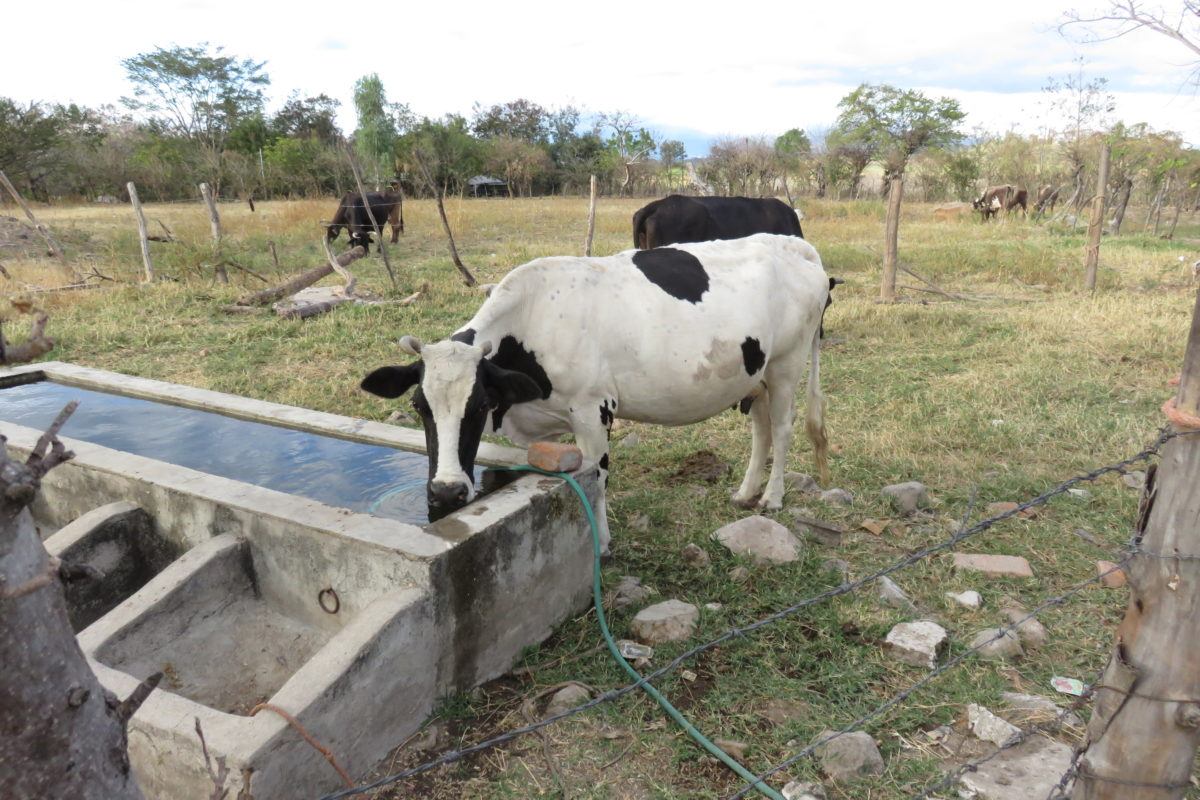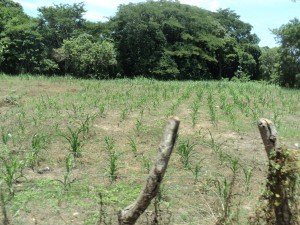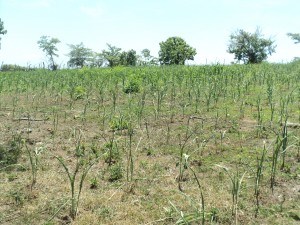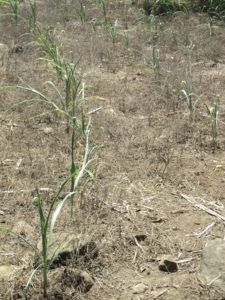
By Gaby Bandini, ESPERA Business Facilitator
More than 30% of the population in Nicaragua and Honduras, 25% of Guatemala and 20% and El Salvador live in poverty. In February 2013, the research organizations CRS, CIMMYT & CIAT [1] published the results of an impact analysis about the effects that climate change can have on El Salvador, Guatemala, Honduras and Nicaragua’s corn and bean production by 2025. The panorama shown was not positive for most of the countries, except for Guatemala, which will have better opportunities in production due favorable conditions in its mountainous region.

In Nicaragua, Honduras and El Salvador changes in climate are prolonging drought; combined with the current soil degradation and poverty levels within these three Central American countries, at least 1 million of small farmers who produce 70% of the local consumption of corn and 100% of the region’s auto consumption of beans [2] will struggle in the next ten years with a significant reduction in production levels for the two most socially, economically and culturally important crops within the region.
A significant reduction in those yields could have severe effects in food security and sovereignty of people in rural areas; especially in El Salvador, which has been shown to be more vulnerable in terms of food access and stability of future food supply, followed by Honduras and Nicaragua [3].
For Guatemala, Honduras, Nicaragua and El Salvador, corn and beans are the main source of nutrition and energy within households and culturally are present in almost all traditional dishes; in average consumption per capita in these 4 countries is 76.4kg of corn and 13.9 kg of beans. In El Salvador for example, most traditional and daily basis dishes use corn and beans as main ingredients, including pupusas, tamales, atol, pastel de carne, empanadas de plátano y frijol, enchiladas, pacalla and chilate.

Vilma, the local ESPERA coordinator of Concertación de Mujeres de Suchitoto, reported some of the effects that drought has had in women’s milpa (the name used in Latin America for the traditional way of sowing that combines beans and corn in the same field) during the 2015 agricultural cycle. Usually farmers have one harvest of corn per year and the opportunity to grow twice as many beans during the same period.
With a lack of rain during more than 20 days of the first harvest period, at least 8 women from 3 different communities of ESPERA groups lost their entire milpa plantations. Even though they tried to sow beans in the second period, the harvest was not enough to meet their family needs for the year; therefore, they had to buy beans and corn needed for regular consumption and the loan that was invested in inputs like fertilizers got lost too.

At the national level, Eva said it is estimated that during 2015 El Salvador lost 14 million quintales of corn and 142 thousand quintales of beans, affecting more than 104 municipalities located mainly in the eastern part of the country. The food security of families is highly dependent on climate change.
With a deficit in production, El Salvador usually imports corn from the U.S. and México and beans from Nicaragua and China. Prices during 2015 in Suchitoto were around US$35 per quintal of beans and US$18.50 per quintal of corn during harvest period.
Guatemala, Honduras, Nicaragua and El Salvador share some characteristics of vulnerability in food security, mostly related with a low ability to adapt to climate changes:
“Rural households will go through a particularly difficult time to deal with climate change where infrastructure (equipment and road) is inadequate, access to natural resources (water and land) is limited, financial resources are scarce and capital is very weak (specifying social capital as lack of organization among small producers).” [4] (p.2)
In this sense ESPERA, together with the women’s organizations, attempts to sort challenges that women farmers are facing, like the lack of access to traditional financial resources, and to reinforce social capital, taking action by organizing themselves.
Women in the Chaguitón Community in El Salvador recieved new loans at the end of May 2016. They displayed great enthusiasm in taking measures to prevent major losses with their new loans. One of the women will plant the majority of her crops on in a different area near her community, while two other women have decided to invest their loans, $300 each, in other activities—cattle and a store.
This is part three of a three-part series on the drought in Central America and its effect on the women of ESPERA, as reported by ESPERA staff. Click here for parts one and two.
Written with support from Taylor Harwood.
